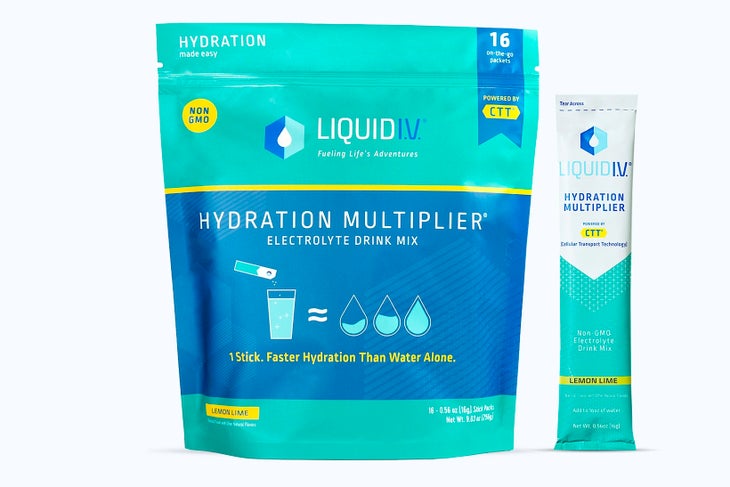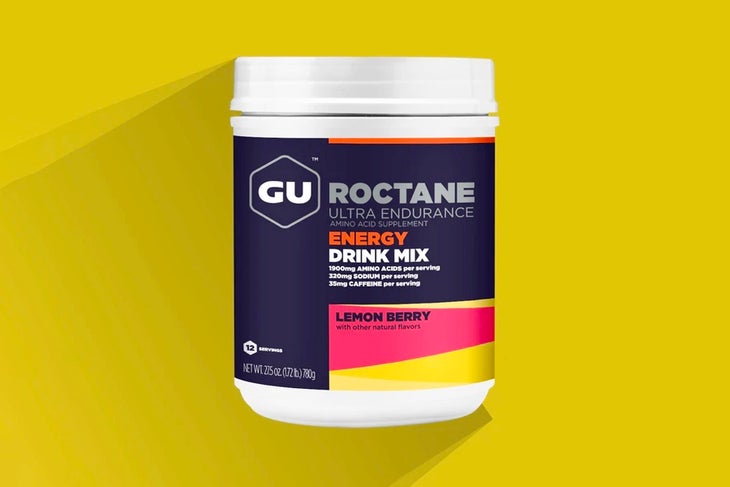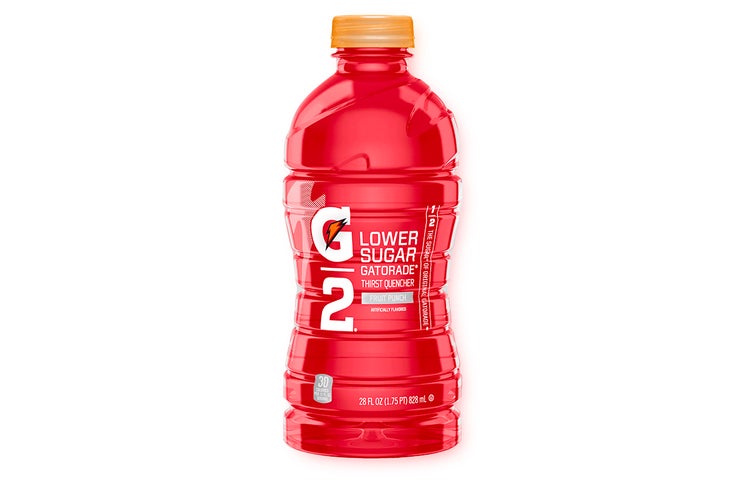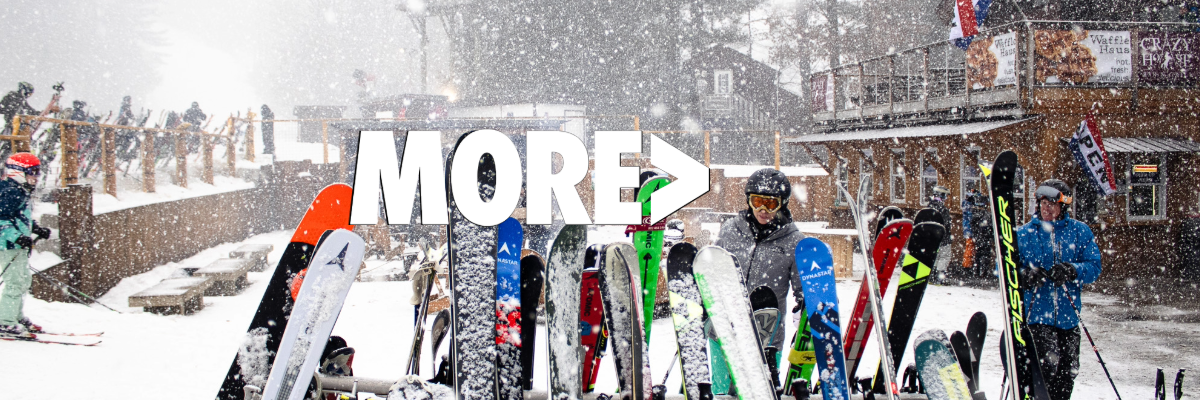Get access to everything we publish when you
sign up for Outside+.
When you hear the words “sports drink”, what is the first thing that comes to mind? For many runners, it’s “too much sugar,” while others may think, “I don’t need that.” The reality is, for any runners running longer than 60 minutes in duration, a quality sports drink should be on their nutrition essentials list.
What to Look for in a Running Sports Drink
The purpose of a sports drink is to help replenish energy, electrolytes, and fluids lost while running. When choosing which sports drink would work best for you, there are quite a few components to consider.
Carbohydrates
Energy or calories in a sports drink often come from carbohydrates (yes, sugars! and no, they are not bad) and may or may not be necessary depending on the duration of the run. Carbohydrates themselves are the most efficient form of energy production in the body. Think of them as your gasoline that allows for you to feel great and run at a specific pace.
Your body contains a finite amount of stored carbohydrate, called glycogen (about 2,000 calories worth), which is used for an efficient source of energy production during times when food is not available. The stored fuel will get you about 90 minutes to 2 hours worth of running without fatigue.
This is where sports drinks with carbohydrates come in. Carbohydrates in sports drinks allow for you to go longer without experiencing the dreaded “hitting the wall” effect. A good target of intake for carbohydrates is 40–90g/hour, and this can come from a mix of sports drinks, gels, and food options.
When considering the types of carbohydrates to consume, we need to consider our anatomy. The small intestine contains two types of sugar transporters, glucose and fructose, which open up and allow for sugars to be absorbed and go into the bloodstream and be utilized for energy production when you are running. This is where it gets a little tricky: Too much glucose or fructose at once in the small intestine can cause stomach cramping and bloating. So you must be careful with the combination of sports drink and other food/gel options that you choose to consume during your run. And for those that have a fructose intolerance, sports drinks that contain it should be avoided.
RELATED: Your Complete Runner’s Guide to Carbohydrates
Electrolytes
Like a missing puzzle piece, electrolytes are key in nutrient utilization, fluid balance, and muscle contraction during your runs. Electrolytes needed in the body include: sodium, potassium, calcium, chloride, and magnesium. When it comes to the best sports drinks for runners, focusing on sodium intake is king, because it is lost in the highest amounts in sweat. Plus, it plays a key role in sugar transport in the small intestine and with fluid balance, which prevents cramping, bloating, and bonking.
A good starting place for most runners is 250–500mg of sodium intake per hour, which can easily come from a sports drink. Less salty sweaters can stick to the low end, and saltier runners and runner’s racing at altitude or in the heat should aim for the higher end of the recommendation. Salt tablets or food can also provide some sodium, but it can be tougher to get in the appropriate amount needed per hour.
What to Avoid in a Sports Drink
Sports drinks typically contain your carbohydrates and electrolytes, but some may have additives that you want to be cautious about when making your decision.
Sugar Alcohols
A common additive to low- or no- calories sports drinks, sugar alcohols are a type of carbohydrate that has a different chemical structure than to your traditional sugars but taste just as sweet. The problem is, they are not fully absorbed or digested in the gastrointestinal system and can cause bloating, gas, diarrhea, and stomach cramping. If you know you can handle sugar alcohols, it may not be cause for concern, but we recommend caution when trying them.
What to Look For: Xylitol, Maltitol, Erythritol, Sorbitol
RELATED: These 6 Sports Products Will Save Your Sensitive Stomach
Caffeine
While caffeine may be helpful for certain runners, others must use caution when taking it in. While it can provide you with a boost of energy, it is also a gastrointestinal stimulant and can cause bloating, gas, diarrhea, and stomach cramping.
What to Look For: No more than 3–6g/kg body weight of caffeine is recommended for intake per hour of running
RELATED: 10 Things the Latest Science Tells Us About Caffeine and Athletes
Herbs and Vitamins
Some sports drinks may contain other herbs, vitamins, and minerals that are likely to offer very little (if any) benefits. Caution should be used with any additives because of the potential for gastrointestinal, heart-, and brain-related side effects.
What to Look For: Taurine, Ginseng, Vitamin C, B vitamins, Guarana, Beta-Alanine
Allergens
If you have any food allergies to things like soy or gluten, ensure that your sports drink of choice does not contain any of those allergens (or is processed in a facility that uses them).
What to Look For: Gluten (any sort of wheat), soy, egg, nut, dairy ingredients
Warm vs. Cold Weather Options
A good sports drink is going to be ideal in both cold and warm weather, though you may be able to turn that warm-weather option into a cold weather one by using hot water to mix it up. Carry as you normally would in your bottles. When running in colder weather, keep in mind that your thirst mechanism will often be blunted and sweat rate reduced, but that doesn’t mean that you don’t need to take in fluids, calories, and electrolytes. Keep on top of your intake pattern to ensure you are still hydrating properly.
As a quick rehydration option post cold weather run, broth is your best friend. With its concentrated electrolyte content, it can help replace both fluids and electrolytes, all while warming you back up.
Types of Sport Drinks
Electrolyte-Only Sports Drinks

These only contain your sodium, magnesium, chloride, potassium, and calcium. They do not contain any carbohydrates or calories, so they are not the best option for those that are trying to get energy from their hydration mix.
Who are they good for: Runners that wish to get their calories from food or gels only, those that are running less than 90 minutes in duration but need an electrolyte boost, or those that are trying to replace lost electrolytes throughout the day.
Products: LMNT Recharge, Nuun Hydration Tablets, Liquid I.V. Hydration Multiplier, Ultima Replenisher
Electrolyte and Carbohydrate Sports Drinks

Your total package sport drink options that contain carbohydrates, fluids, and electrolytes all in one formula.
Who they are good for: Those runners that want to have a convenient liquid option that allows them to hydrate and get in proper nutrition throughout their run.
Products: GU Energy Labs Roctane Energy Drink Mix, Skratch Labs Hydration Mix, Science in Sport Beta Fuel, Gnarly Nutrition Fuel2O, Tailwind Endurance Fuel
Low-Calorie Sports Drinks

These may contain lower amounts of carbohydrates. A note of caution: This type may contain sugar alcohols, leaving runners open to gastrointestinal distress.
Who they are good for: These options may be good as a post-workout fueling option, but typically they’re not the best choice for mid-run hydration and nutrition.
Products: Gatorade G2, Body Armour Lyte, Huma Hydration Low-Calorie Drink Mix
